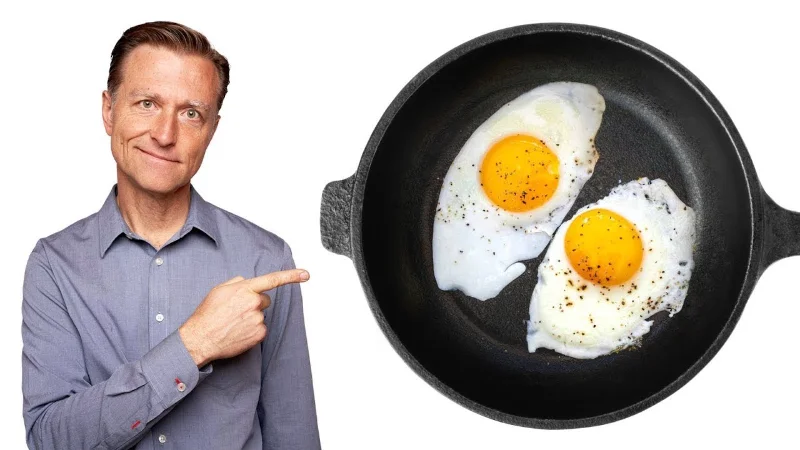2. Eating cholesterol affects different people, well, differently.

Advertisement
Egg yolks do contain significant cholesterol levels, with one large egg providing approximately 186 mg. Nevertheless, before eliminating eggs from your meal plan, consider reviewing the USDA's current nutritional recommendations. Scientific evidence demonstrates that for roughly 70% of individuals, eggs produce minimal to no effect on cholesterol levels. Nutrition experts clarify that consuming high-cholesterol foods does not automatically result in elevated blood cholesterol. Remarkably, for 30% of people, eggs might actually assist in lowering low-density lipoprotein (LDL) cholesterol concentrations.
The connection between dietary cholesterol and blood cholesterol proves much more intricate than earlier research suggested. Contemporary studies show that individual responses to dietary cholesterol vary significantly and depend on multiple factors including genetic makeup, complete dietary patterns, lifestyle choices, and pre-existing health conditions. For the majority of healthy people, the liver naturally regulates cholesterol production according to dietary consumption, keeping blood cholesterol levels steady. This scientific understanding has prompted substantial modifications in nutritional guidelines during recent years, with numerous health authorities removing earlier limitations on egg consumption.
Like all foods, balance remains essential. Dr. Hong recommends concentrating on complete dietary approaches instead of focusing on individual nutrients or specific foods. For individuals with cholesterol concerns, routine blood lipid monitoring and seeking professional healthcare guidance for customized recommendations is advisable.
Advertisement










